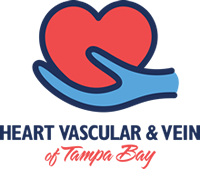Life After Catheter Ablation Procedure
Returning to Normal Life
AFTER CATHETER ABLATION
After a successful catheter ablation procedure, most people can return to a normal, active lifestyle and experience improvement in their quality of life.
REGULAR FOLLOW-UP VISITS
It’s important to have regular checkups to make sure atrial fibrillation has not returned. In some cases, individuals need a repeat procedure to achieve full success. Even without symptoms, atrial fibrillation can be a serious medical condition. If atrial fibrillation is not treated, it may lead to a stroke, heart failure, or fatigue.
HEALTHY LIFESTYLE CHANGES
Some lifestyle changes may help prevent further atrial fibrillation:

- Maintain a healthy weight. Reduce calorie intake and get more exercise.
- Stop nicotine use. Nicotine constricts blood vessels and forces your heart to work harder. Carbon monoxide damages the lining of your blood vessels.
- Control your blood pressure. Check your blood pressure regularly. If you have high blood pressure, follow your doctor’s orders and take all prescribed medications as directed.
- Control your cholesterol. Have your cholesterol checked regularly. Eat fewer high-cholesterol foods, and take cholesterol-lowering medication if needed.
- Keep diabetes under control. If you have diabetes, controlling your blood sugar level can help slow the progression of coronary artery disease.
- Get moving. Exercise helps you achieve and maintain a healthy weight. It can also help control diabetes, high cholesterol, and high blood pressure. Try to get 30 to 60 minutes of physical activity most days of the week. As with all exercise programs, seek the advice of your doctor before you start.
- Eat healthy foods. A heart-healthy diet based on fruits, vegetables, and whole grains – and low in saturated fat, cholesterol, and sodium – can help you control your weight, blood pressure, and cholesterol.
- Avoid excessive amounts of alcohol and caffeine.
- Manage stress. Reduce stress as much as possible. Practice healthy techniques for managing stress such as muscle relaxation, deep breathing, and exercise.
- Treat sleep apnea or thyroid disorders. If you have sleep apnea or a thyroid disorder, it’s important to get treatment since these may contribute to atrial fibrillation.
Information on this site should not be used as a substitute for talking with your doctor. Always talk with your doctor about diagnosis and treatment information.
